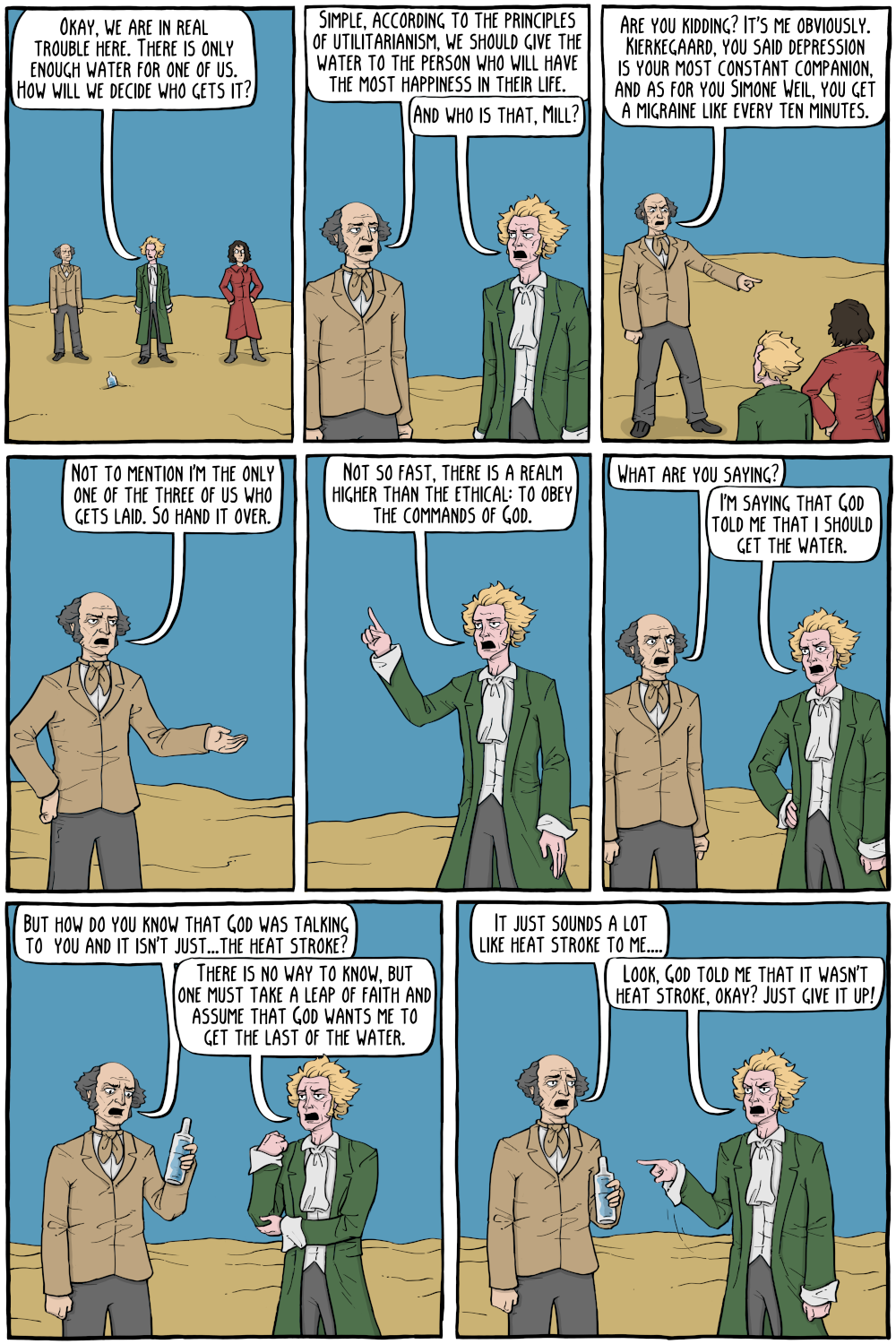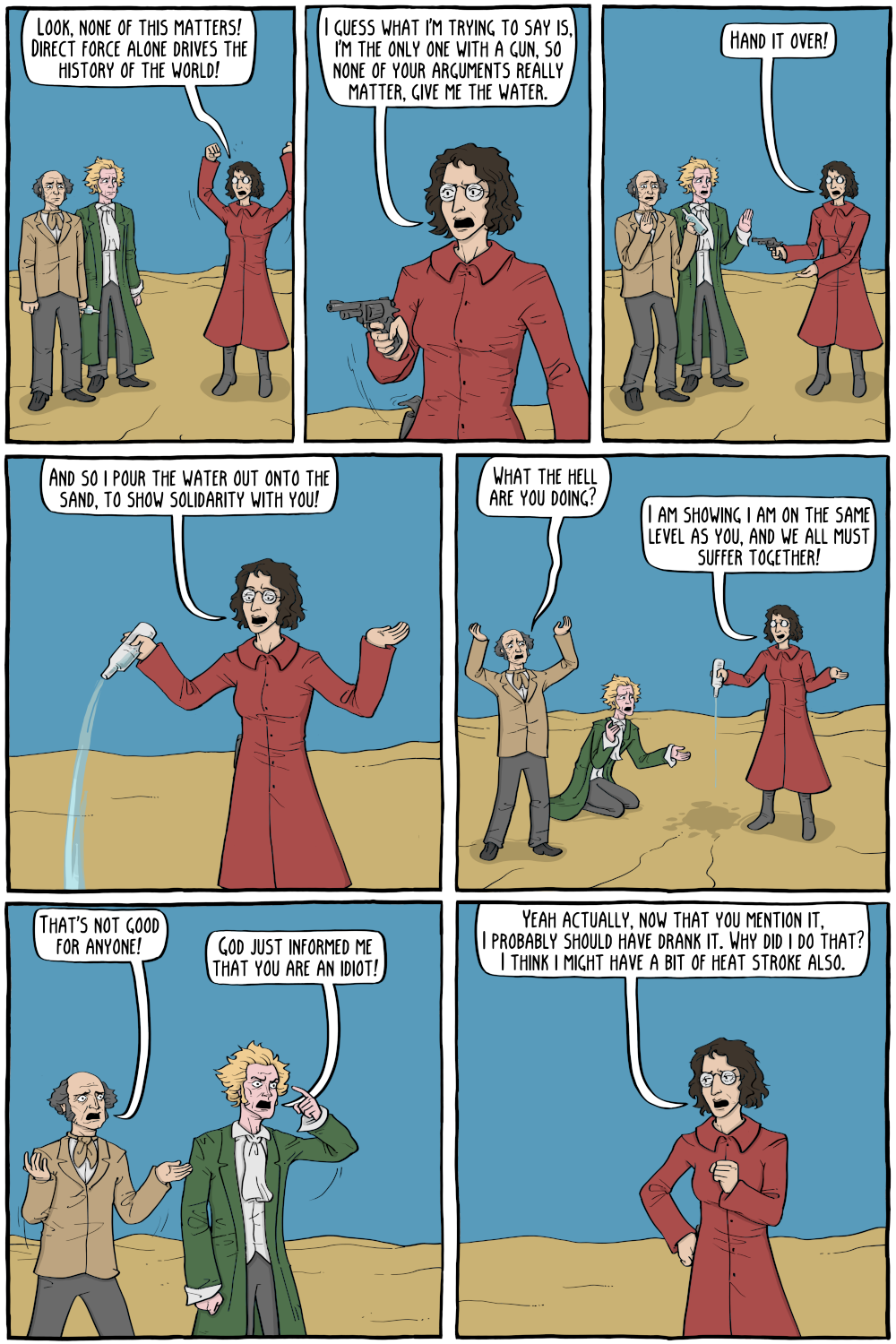

John Stuart Mill, being a utilitarian, believed that any ethical decision should be decided creating the most happiness or utility in the world. It seems rather obvious that his life will lead to more happiness than Kierkegaard and Weil, who are both sort of religious puritans who suffered throughout their lives, both physically and emotionally. They both also possibly died as virgins in their 30s. On the other hand, this is how Harriet Taylor Mill (JS Mill’s wife) describes sex:
Sex in its true and finest meaning, seems to be the way in which is manifested all that is highest, best and beautiful in the nature of human beings – none but poets have approached to the perception of the beauty of the material world – still less of the spiritual – and there never yet existed a poet except by the inspiration of that feeling which is the perception of beauty in all forms and by all means which are given us, as well as by sight.
She ends the essay saying “it is all for you” to John Stuart Mill. So it seems that we have some evidence that he was having a good time.
Kierkegaard, on the other hand, believes that the religious transcends the ethical, and even in some cases it is our duty to act in accordance with God’s will even if it goes against ethics, such as when Abraham was commanded to kill his son. Even if Abraham was suspicious that it was not God that was commanding him, but some kind of madness, he had to follow through regardless.
Simone Weil’s ethics was highly influenced by a parable she heard about Alexander the Great. When he was crossing the desert with his army, he heard that his men were out of water, so what he did was go before them and pour his own flask of water out onto the sand, to show that they were all in it together. Weil thought it was a beautiful moment of ethics, because it was creative and surprising, but once it happened everyone realized that was how it had to be. In her own life she often put herself though suffering in similar ways, such as refusing to heat her home or sleeping on the floor because others had to live that way. These acts are entirely useless to anyone else but she believed were necessary for herself to live a fully authentic ethical life.
Permanent Link to this Comic: https://existentialcomics.com/comic/518
Support the comic on Patreon!










